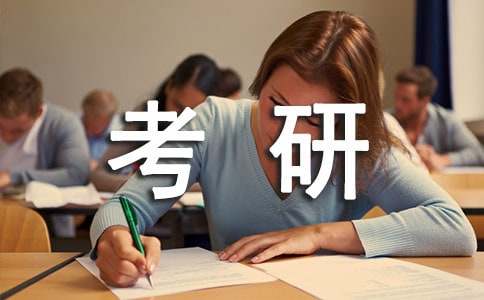朱泰琪2005考研英语讲座阅读理解部分讲义
考研学生提高英语阅读理解能力一般要经历四个发展阶段:

1. 字面心译阶段,即在阅读时要通过逐词心译来理解原文。由于两种语言在句子语法结构、词语用法、语言习惯等方面存在着许多差异,这个阶段对原文的理解常会发生错误。
2. 分析性心译阶段,即在对原文的词语和结构进行一些分析以后,再进行心译,或心译过程伴随着词语和结构的分析。这时理解力比前一阶段有所提高,但阅读速度很慢。
3. 综合性心译阶段。在这个阶段由于语言水平的提高,阅读经验的积累,不经分析而直接将原文译成汉语。
4. 直接理解原文阶段。在这个阶段由于语言能力的提高,读者的理解已进入英语思维的模式,可以直接理解原文。
以上4个阶段只是大体上的划分,在实际阅读训练中,这4个阶段不是截然分割的。比如,处于第2阶段时,也不可能对每个句子都分析一遍后再来心译。第4阶段也可能伴随少量的心译,因为本族语毕竟是理解外语的媒介。
了解阅读能力提高的过程有利于加速阅读能力的培养。一般来说,我们的考生是处在介乎第2和第3阶段之间。对所读的材料有时要经过查阅词典,分析心译成汉语才能达到真正的理解。这作为阅读能力提高的一个阶段是不可避免的。但要努力缩短这一阶段,防止这种阅读方法成为定势。要尽可能减少心译,以提高阅读速度,达到基本上直接理解原文的阶段。
从逻辑和思维的角度看,阅读理解能力的提高是一个由浅入深、由片面到全面、由低层次到高层次的发展过程。较低层次的理解是字面理解。考生对所读内容只能理解字面含义。随着理解的不断深化,考生逐渐进入推断性理解层次。考生慢慢能从语篇结构的高度来审视文章内容的逻辑结构和内在联系,从而进入更深层次的理解,如从字里行间理解作者要表达的内涵。最高层次是评价性阅读理解。研究生英语入学考试中的阅读理解就属于这个层次。这时考生需能凭借自己的阅读经验和分析能力对所读文章和题目选项进行评价,如:选择项所传递的信息是否确切、事实是否可靠、结论是否正确以及信息的应用价值等。
考研学生应具备哪些能力才能应对阅读考试的需要呢?
1. 理解文章的主旨、抓住全文的中心思想和展开中心思想的逻辑层次;
2. 理解文章中的具体信息和细节;
3. 理解明确或隐含表达的概念性含义;
4. 进行有关的判断、推理和引申;
5. 根据上下文推测不熟悉词语的含义;
6. 理解作者的写作目的、态度、语气及文章的基调;
7. 以上各项能力要求必须在规定的时间内完成。
I. Reading Comprehension:
Text 1
(2004 RC 4 )
Americans today don’t place a very high value on intellect. Our heroes are athletes, entertainers, and entrepreneurs, not scholars. Even our schools are where we send our children to get a practical education – not to pursue knowledge for the sake of knowledge. Symptoms of pervasive anti-intellectualism in our schools aren’t difficult to find.
Schools have always been in a society where practical is more important than intellectual,” says education writer Diane Ravitch. “Schools could be a counterbalance.” Ravitch’s latest book, Left Back: A Century of Failed School Reforms, traces the roots of anti-intellectualism in our schools, concluding they are anything but a counterbalance to the American distaste for intellectual pursuits.
But they could and should be. Encouraging kids to reject the life of the mind leaves them vulnerable to exploitation and control. Without the ability to think critically, to defend their ideas and understand the ideas of others, they cannot fully participate in our democracy. Continuing along this path, says writer Earl Shorris, “We will become a second-rate country. We will have a less civil society.”
“Intellect is resented as a form of power or privilege,” writes historian and professor Richard Hofstadter in Anti-Intellectualism in American Life, a Pulitzer Prize winning book on the roots of anti-intellectualism in US politics, religion, and education. From the beginning of our history, says Hofstadter, our democratic and populist urges have driven us to reject anything that smells of elitism. Practicality, common sense, and native intelligence have been considered more noble qualities than anything you could learn from a book.
Ralph Waldo Emerson and other transcendentalist philosophers thought schooling and rigorous book learning put unnatural restraints on children:” We are shut up in schools and college recitation rooms for 10 or 15 years and come out at last with a bellyful of words and do not know a thing.” Mark Twain’s Huckleberry Finn exemplified American anti-intellectualism. Its hero avoids being civilized – going to school and learning to read – so he can preserve his innate goodness.
Intellect, according to Hofstadter, is different from native intelligence, a quality we reluctantly admire. Intellect is the critical, creative, and contemplative side of the mind. Intelligence seeks to grasp, manipulate, re-order, and adjust, while intellect examines, ponders, wonders, theorizes, criticizes and imagines.
School remains a place where intellect is mistrusted. Hofstadter says our country’s educational system is the grips of people who “joyfully and militantly proclaim their hostility to intellect and their eagerness to identify with children who show the least intellectual promise.” (414 words)
Notes:intellect 才智,智能,理解力,思维能力;知识分子。entertainers 表演家。entrepreneurs 企业家。pervasive 弥漫的,渗透的,遍布的。intellectualism (哲)主知主义(主张知识为纯理性的产物)。counterbalance 平衡力,起平衡作用的因素。distaste (for) n. 厌恶,不喜欢。vulnerable adj. 脆弱的。populist adj. 民粹的。elitism 杰出人物统治论,高人一等的优越感。complementary 补充的,互补的。civil 公民的;文明的。transcendentalist 先验论的。rigorous 严格的,严厉的。a bellyful of 满腹的。innate 天生的,先天的。contemplative 沉思的。
1. What do American parents expect their children to acquire in school?
A. The habit of thinking independently.
B. Profound knowledge of the world.
C. Practical ability for future career.
D. The confidence in intellectual pursuits.
2. We can learn from the text that Americans have a history of
A. undervaluing intellect.
B. favouring intellectualism.
C. supporting school reform
D. suppressing native intelligence.
3. The views of Ravitch and Emerson on schooling are
A. identical. B. similar.
C. complementary. D. opposite.
4. Emerson, according to the text, is probably
A. a pioneer of education reform.
B. an opponent of intellectualism.
C. a scholar in favor of intellectualism.
D. an advocate of regular schooling.
5. What does the author think of intellect?
A. It is second to intelligence.
B. It evolves from common sense.
C. It is to be pursued.
D. It underlies power.
正确答案:C. A. D. B. C
文 章 解 析
第一段:美国的社会和学校重视实践而不重视理性思维。"intellect"——"理性的才智"——全文主题信息词"for the sake of"——"为了...起见"
第二段:Ravitch 的观点"anything but"——"根本不、绝对不、一点都不"
对应第1题:细节理解。(解体技巧:抓关键词"Practical")
答案为:C
第三段:作者及 Shorris 的观点。
第四段:"urge"——"n.要求、热切的期望"
"v. urge sb to do sth遵从某人做某事"
"urge+that从句",从句中用虚拟语气should+v原形
对应第2题:细节推理题。抓关键词history(解题技巧:正话反说,反话正说)
"history"信号词 B.D.正反颠倒 C.答非所问
答案为:A (正话反说)
第五段:
对应第3题:总结归纳题。(解题技巧:划出题目中的信号词"Ravitch" "Emerson",回原文找信号词接轨)
答案为:D
对应第4题:总结归纳、推理判断。
答案为:B
对应第5题:作者观点题,即文章主旨题。